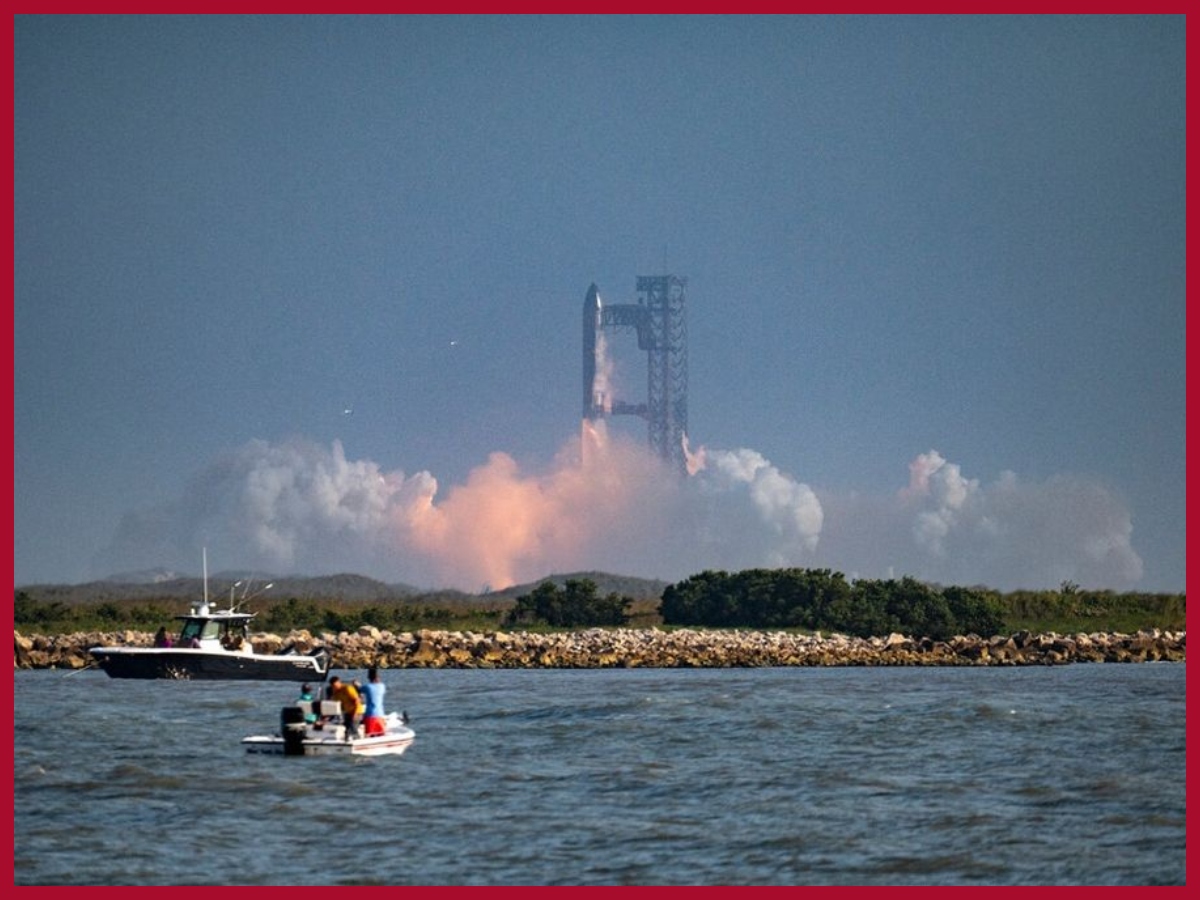The skies above the Texas-Mexico border have become a flashpoint for international tensions as debris from SpaceX’s latest rocket explosion rains down on Mexican beaches, prompting President Claudia Sheinbaum to consider legal action against Elon Musk’s aerospace company. What began as another routine test firing at SpaceX’s Starbase facility has evolved into a diplomatic crisis that highlights the complex environmental and political challenges of modern space exploration.
The incident unfolded this month when one of SpaceX’s massive Starship rockets disintegrated in a spectacular fireball during engine testing preparations. While no human casualties occurred at the South Texas launch site, the explosion sent debris cascading across the international border into Mexico’s northern state of Tamaulipas, where residents discovered metal fragments and entire fuel canisters scattered across their beaches.
President Sheinbaum’s measured but firm response reflects Mexico’s growing frustration with what many perceive as environmental negligence from their northern neighbor. Speaking at a Wednesday news conference, she announced that Mexican authorities are conducting a comprehensive review of SpaceX’s operations near the border. “We are reviewing everything related to the launching of rockets that are very close to our border,” Sheinbaum declared, adding that Mexico would file necessary legal claims if international laws were violated.
The environmental impact appears particularly severe, with activists in Tamaulipas reporting devastating effects on marine ecosystems. Local environmental groups have documented what they describe as a massive die-off of sea life, including fish, dolphins, and endangered sea turtles. These reports paint a troubling picture of ecological damage extending far beyond the immediate blast zone, raising questions about the true cost of humanity’s space ambitions.
For residents of Matamoros, a bustling border city, the debris field has become an unwelcome reality. Families walking along beaches that have served their communities for generations now encounter twisted metal and chemical residue instead of the pristine coastline they once knew. The sight of SpaceX canisters washing up on shores where children play has transformed the abstract concept of space exploration into a tangible threat to daily life.
Governor Américo Villarreal Anaya of Tamaulipas has emerged as a vocal critic, questioning whether SpaceX is maintaining internationally required safety distances from populated areas. His concerns reflect broader anxieties about powerful corporations operating with apparent impunity near vulnerable communities. The governor’s investigation into safety protocols signals that Mexican authorities are no longer willing to accept environmental damage as an inevitable byproduct of progress.
The controversy has ignited passionate discussions across Mexican social media, where citizens are grappling with complex questions about sovereignty, environmental justice, and corporate accountability. Many Mexicans view the situation through the lens of historical power imbalances, seeing parallels between past exploitation and current environmental negligence. The fact that Elon Musk, the world’s wealthiest individual, maintains close ties to President Donald Trump only intensifies these concerns about accountability.
María Elena Álvarez-Buylla Roces, a respected molecular genetics professor at Mexico’s National Autonomous University, captured the public mood with a pointed social media question: “How much longer will the greed of a few be allowed to marginalize the many and put life and our planet at risk or in peril of destruction?” Her words resonate with many who see SpaceX’s operations as emblematic of broader environmental and social inequalities.
The timing of this crisis compounds existing tensions between the United States and Mexico. The two nations are already navigating disagreements over migration policies, fentanyl trafficking, and even seemingly minor issues like naming conventions for geographic features near Starbase. Against this backdrop, rocket debris becomes more than an environmental issue—it transforms into a symbol of respect, or lack thereof, for Mexican sovereignty and safety.
SpaceX’s silence on the matter has not gone unnoticed. The company’s failure to immediately respond to requests for comment contrasts sharply with its typically active public relations approach. This silence may reflect the serious legal and diplomatic implications of cross-border environmental damage, but it also risks appearing dismissive of legitimate Mexican concerns.
The incident highlights broader challenges facing the commercial space industry as launch frequencies increase dramatically. SpaceX recently received authorization from U.S. aviation authorities to quintuple its annual Starship launches from Starbase, jumping from five to twenty-five missions per year. This expansion promises more frequent tests, more powerful rockets, and inevitably, more opportunities for accidents with international consequences.
Mexico’s situation mirrors similar concerns elsewhere. A March explosion disrupted air traffic across multiple U.S. states, from Florida to Pennsylvania, demonstrating that space debris poses risks far beyond immediate launch areas. As commercial space operations expand globally, these incidents may become increasingly common, forcing nations to develop new frameworks for managing transboundary space pollution.
The SpaceX controversy also reflects changing dynamics in Mexico under President Sheinbaum’s leftist administration. Her party’s significant political influence provides her with the domestic support necessary to challenge powerful foreign corporations. This political backing may prove crucial as Mexico navigates potential legal battles with one of the world’s most valuable companies.
For environmental activists, the Tamaulipas incident represents a crucial test case for holding space companies accountable for their earthbound impacts. Their documentation of marine life casualties provides concrete evidence of space exploration’s hidden costs, challenging romantic narratives about humanity’s cosmic destiny with stark ecological realities.
As investigations continue and diplomatic tensions simmer, the SpaceX debris controversy serves as a stark reminder that the new space age brings old problems of environmental justice and international accountability. The beaches of Tamaulipas, littered with the remnants of Martian dreams, tell a story about who pays the price for technological progress and whether the most powerful companies and individuals on Earth can be held responsible for the damage they cause while reaching for the stars.

